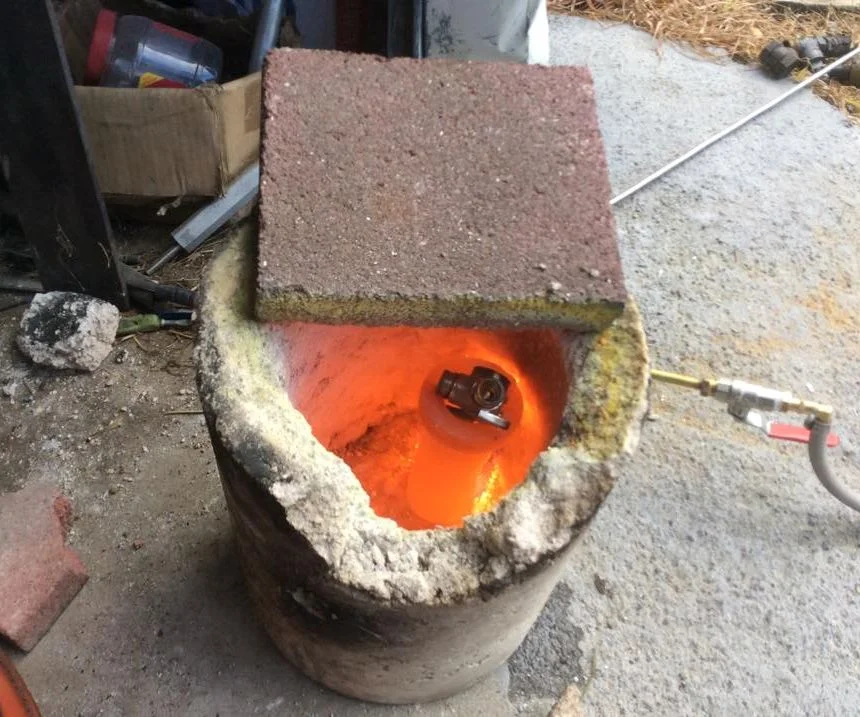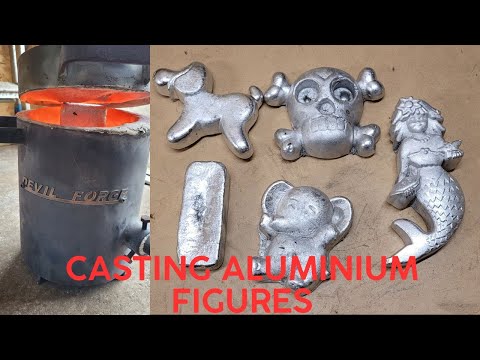Things about Alcast Company
Things about Alcast Company
Blog Article
See This Report about Alcast Company
Table of ContentsAbout Alcast CompanyWhat Does Alcast Company Do?All about Alcast CompanyThe Main Principles Of Alcast Company Things about Alcast CompanyA Biased View of Alcast Company
Chemical Contrast of Cast Light weight aluminum Alloys Silicon advertises castability by reducing the alloy's melting temperature level and improving fluidity throughout casting. Additionally, silicon adds to the alloy's stamina and put on resistance, making it important in applications where resilience is crucial, such as auto parts and engine components.It also boosts the machinability of the alloy, making it easier to process right into ended up products. This way, iron contributes to the overall workability of aluminum alloys. Copper increases electrical conductivity, making it advantageous in electrical applications. It also improves rust resistance and includes in the alloy's general strength.
Manganese adds to the strength of light weight aluminum alloys and boosts workability. Magnesium is a lightweight aspect that gives toughness and impact resistance to light weight aluminum alloys.
7 Simple Techniques For Alcast Company
Zinc boosts the castability of aluminum alloys and helps manage the solidification process throughout casting. It boosts the alloy's stamina and solidity.

The primary thermal conductivity, tensile strength, yield stamina, and prolongation differ. Among the above alloys, A356 has the highest thermal conductivity, and A380 and ADC12 have the least expensive.
Alcast Company Can Be Fun For Everyone

In precision spreading, 6063 is appropriate for applications where complex geometries and top notch surface area finishes are critical. Instances include telecommunication rooms, where the alloy's superior formability enables sleek and visually pleasing styles while keeping structural stability. In the Illumination Solutions sector, precision-cast 6063 elements produce classy and efficient illumination components that need detailed forms and good thermal performance.
It causes a better surface area coating and far better corrosion resistance in A360. The A360 displays premium prolongation, making it ideal for complicated and thin-walled components. In precision spreading applications, A360 is fit for markets such as Customer Electronics, Telecommunication, and Power Devices. Its improved fluidity permits elaborate, high-precision components like smart device housings and communication device housings.
All about Alcast Company
Its one-of-a-kind residential properties make A360 a valuable selection for precision spreading in these sectors, improving product longevity and high quality. Aluminum alloy 380, or A380, is a widely made use of casting alloy with several distinct characteristics. It supplies outstanding castability, making it an excellent choice for precision casting. A380 shows excellent fluidity when molten, making sure detailed and comprehensive molds are properly duplicated.
In accuracy spreading, aluminum 413 beams in the Consumer Electronics and Power Equipment sectors. It's generally made use of to craft intricate components like smartphone housings, electronic camera bodies, and power device casings. Its precision is impressive, with tight tolerances up to 0.01 mm, guaranteeing remarkable product assembly. This alloy's premium deterioration resistance makes it a superb selection for outside applications, making sure lasting, resilient products in the stated sectors.
The smart Trick of Alcast Company That Nobody is Talking About
When you have made a decision that the aluminum die casting procedure is suitable for your project, an essential next action is picking the most appropriate alloy. The light weight aluminum alloy you select will significantly impact both the casting process and the residential properties of the last product. Due to this, you should make your choice carefully and take an informed strategy.
Identifying the most suitable light weight aluminum alloy for your application will indicate weighing a large array of attributes. These relative alloy characteristics follow the North American Die Casting Association's standards, and we've split them into two groups. The first category addresses alloy characteristics that impact the manufacturing process. The second covers features influencing the buildings reference of the final item.
The 15-Second Trick For Alcast Company
The alloy you pick for die spreading straight influences several aspects of the casting procedure, like how easy the alloy is to work with and if it is prone to casting defects. Hot cracking, also referred to as solidification breaking, is a typical die casting defect for aluminum alloys that can cause inner or surface-level splits or fractures.
Certain light weight aluminum alloys are extra susceptible to warm splitting than others, and your choice must consider this. Another usual issue found in the die spreading of light weight aluminum is die soldering, which is when the cast adheres to the die walls and makes ejection challenging. It can harm both the actors and the die, so you should try to find alloys with high anti-soldering residential properties.
Deterioration resistance, which is currently a notable characteristic of light weight aluminum, can differ considerably from alloy to alloy and is an essential characteristic to think about relying on the ecological problems your item will certainly be revealed to (aluminum metal casting). Wear resistance is another residential property frequently looked for in light weight aluminum products and can separate some alloys
Report this page